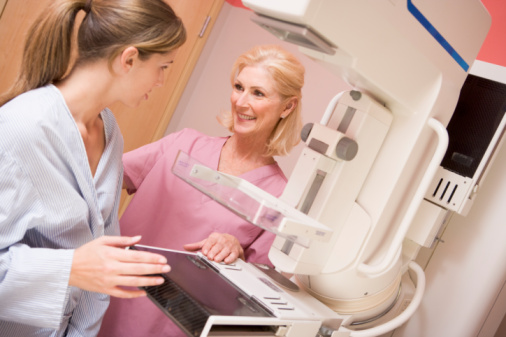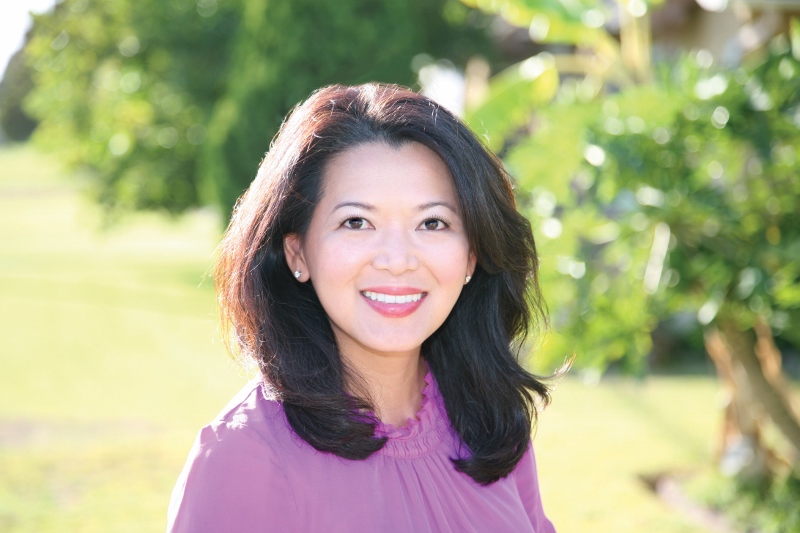The last several years have done wonders for building awareness around the importance of early detection of breast cancer. The public has an understanding like never before of the life-saving measures that self-breast exams and regular mammograms can have on a woman’s health.

While early detection and regular checks are incredibly important, many women are often baffled about what to do once they discover what they’ve been checking for – a lump in the breast. Many find themselves asking what happens next. Do I call my doctor immediately? What can I expect after that call? What are the chances this is cancer?
As a radiologist specializing in breast imaging for EVDI Medical Imaging, I’m often one of the first doctors that women see, usually after being seen by their primary doctor. I hear first-hand the number of questions they have after finding a lump in their breast.
Below are five steps you can expect after you find a lump that will help give you an understanding of what lies ahead:
1. Call your primary physician. When doing your monthly self-breast exam, call your primary care physician if you feel any unusual changes in your breasts. It is important to start with your primary physician first, rather than calling a breast imaging center or a surgeon, because these specialists often require a referral. In addition, your primary physician will help you determine if this next step is even necessary. Once you have made this first call, your primary physician will guide you on what to do next.
2. Book an appointment with a referred specialist. As mentioned above, your primary physician will advise you on next steps. This will usually involve a mammogram, a breast ultrasound or both. A mammogram is an X-ray of the breast that can help determine if there is an abnormality associated with your lump. More importantly, the mammogram is used to screen the rest of the breast tissue for anything abnormal that cannot be felt. An ultrasound looks inside the breast by using soundwaves and can usually help breast imaging specialists determine if a lump is normal breast tissue, a liquid-filled cyst or a solid mass. Depending on an individual’s age and situation, one or both of these studies is usually needed to determine if the lump is concerning or not. Those results will determine if a future action, such as a biopsy, is needed.
3. Get a second opinion. Once the results of a mammogram, an ultrasound, or a biopsy are available, a doctor should be able to tell you if the lump is benign or cancerous. If it is normal or benign, a doctor will usually not recommend any further action; rather, he or she will likely encourage you to keep an eye on it and schedule a follow-up appointment. Sometimes an examination by a breast surgeon is recommended despite normal tests. For individuals who receive a breast cancer diagnosis, it is always wise to get a second opinion from other breast cancer specialists before scheduling surgery, beginning radiation or undergoing chemotherapy.
4. Become as knowledgeable as possible. Whether the lump is benign or cancerous, be sure to become knowledgeable about the next steps with your doctor and specialists. This means coming to doctor appointments with a written list of any questions, asking for informational pamphlets and chatting with other women who have been through a similar scenario. It is often helpful to bring a friend or family member with you as a second pair of “ears”. Be sure you are proactive in learning about your condition, which will help you make better decisions.
5. Check in regularly. Your doctor will have recommendations for the frequency of follow-up appointments or future procedures. It is important to follow through on scheduling these during the recommended time period for optimal health. Even if you have a cancer in remission, be sure to stay current on regular check-ups to make sure the cancer has not come back. Early detection of breast cancer is the key to a good outcome.
Dr. Thuy Vo is a radiologist specializing in breast imaging for EVDI Medical Imaging, the Valley’s leading imaging center. Visit http://www.evdi.com/.

